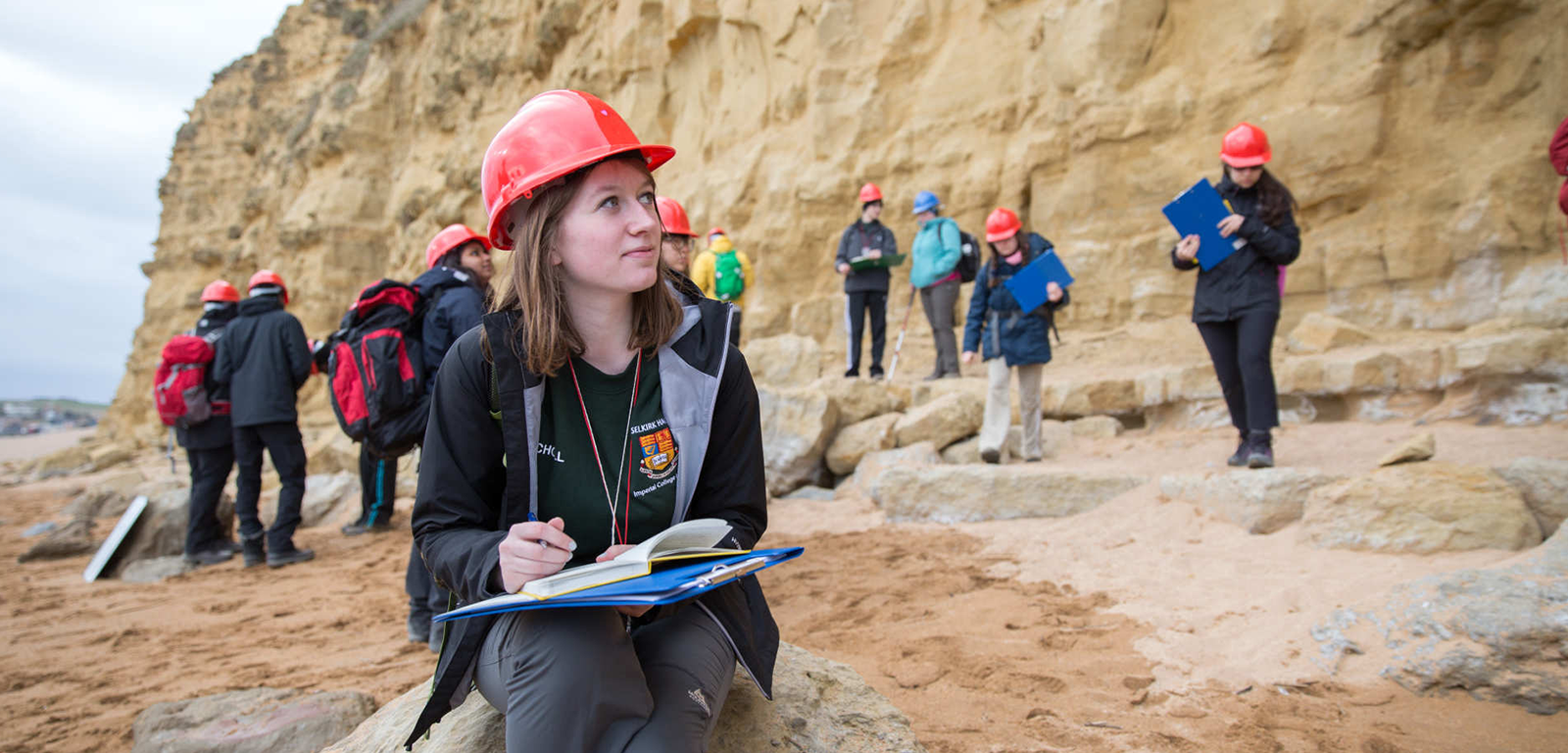

The principal challenge facing the world’s growing population is how to maintain sustainable access to the natural resources – water, energy and food – that are necessary for us to enjoy a good quality of life, while protecting the environment.
The science and engineering behind understanding and solving this challenge lie at the heart of earth science, an interdisciplinary subject which encompasses physics, chemistry, mathematics and other sciences. It can be applied to the study of Earth to give us an understanding of how our planet works, from its internal core, crust and oceans, to the atmosphere and our solar system.
All our courses combine a strong traditional emphasis on observational and field skills with the numerical and analytical fundamental science required to understand Earth processes and systems quantitatively.
We also emphasise the development of transferable professional skills such as group working, problem-solving, drawing inferences from incomplete data, IT, and oral and written communication. You can expect a balance between theory and practice, including a variety of field trips in the UK and abroad.
More information:click here
Year 1
Deforming the Earth
Dynamic Earth and Planets
Geology in the Field
Life over Deep Time
Physical and Surface Processes
Programming for Geoscientists
Stratigraphy and Geomaterials
Volcanism and Internal Processes
Optional modules
Chemistry for Geoscientists or Low Temperature Geochemistry
Maths Methods 1 or Introductory Mathematics
Year 2
High-temperature Geochemistry
Igneous and Metamorphic Geology
Maps and Structures
Palaeontology and Optical Petrology
Pure and Applied Geophysics
Remote Sensing Earth and Planets
Rocks and Structures in the Field
Sediments and Stratigraphy
Solar System Science
Year 3
Independent Project
Continental Tectonics
Integrated Advanced Field Geology
I-Explore module
Your I-Explore module offers you choices from a range of subjects hosted outside of the department. You will be taught alongside students from other courses with options including business, management and many more.
Optional modules
You choose six optional modules in total. Two from Group A and four from Group B. You can take a maximum of three level 7 modules.
This is an indicative list of available modules:
Group A
Climate
Seismic Techniques
Advanced Remote Sensing
Group B
Level 6 modules
Advanced Programming
Astrobiology
Earth Systems
Environmental Seminars
Geological and Coastal Engineering
Gravity, Magnetism and Orbital Dynamics
Hydrogeology and Fluid Flow
I-Explore
Mining Environmental Management
Ore Deposits
Planetary Surfaces
Tectonics of the Oceans
Level 7 modules
Advanced Exploration Geophysics
Applied Geomorphology
Collisions and Craters
Geodynamics
Geohazards
Geological Reactive Transport
Geophysical Inversion
Magmatic Processes and Products
Meteorites
Minerals Processing
Palaeobiology
Palaeoceanography
Planetary Chemistry
Planetary Physics
Some modules run in alternate years. This means that a module may not be available to you in year three, but will be in year four, if you are undertaking the MSci course.

Earth Science is increasingly crucial in helping to tackle some of the world’s most significant challenges, so demand for our graduates is high.
Our three-year BSc degrees are excellent preparation for careers in geosciences and other professions, especially if followed by a relevant MSc and a research degree. Our four-year MSci degrees provide a deeper understanding of the subject and the chance to undertake a significant research project.
Recent graduates of the Department have become:

Insurance-Single:£300/year